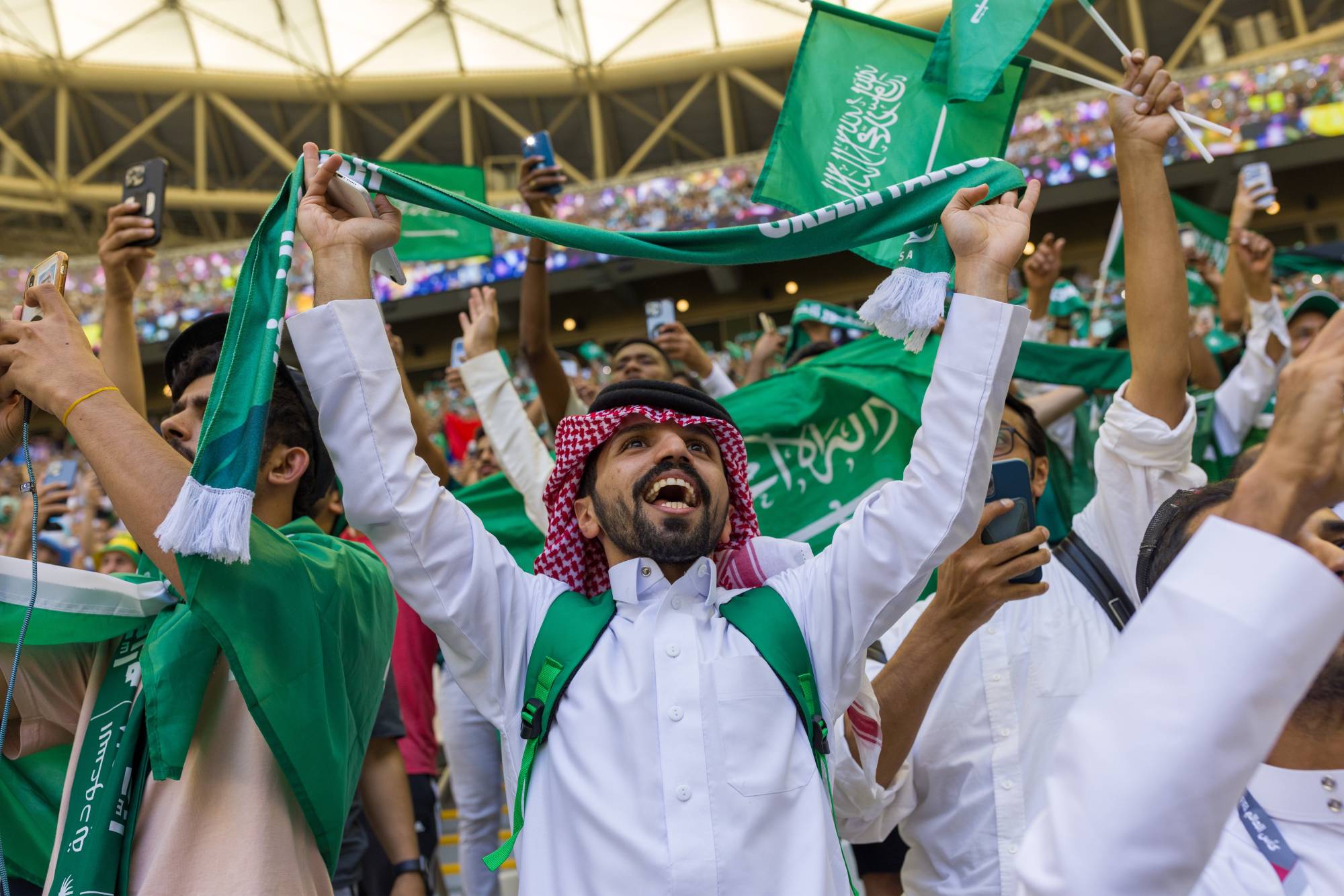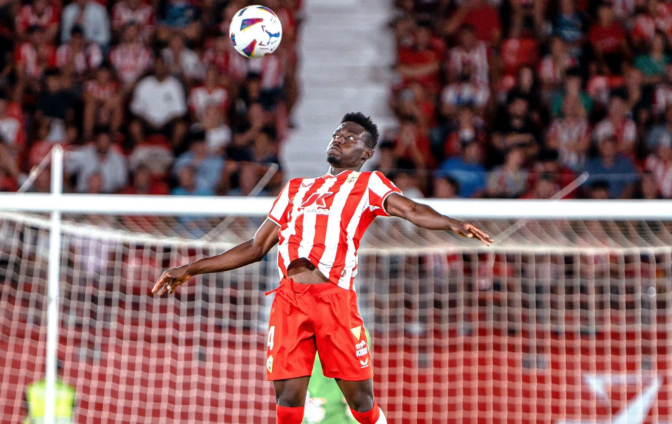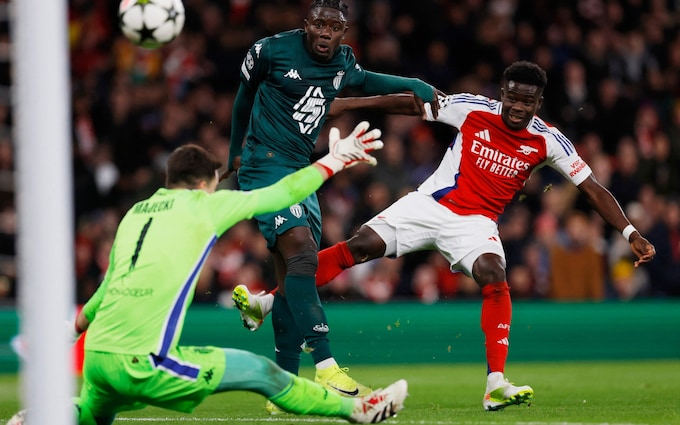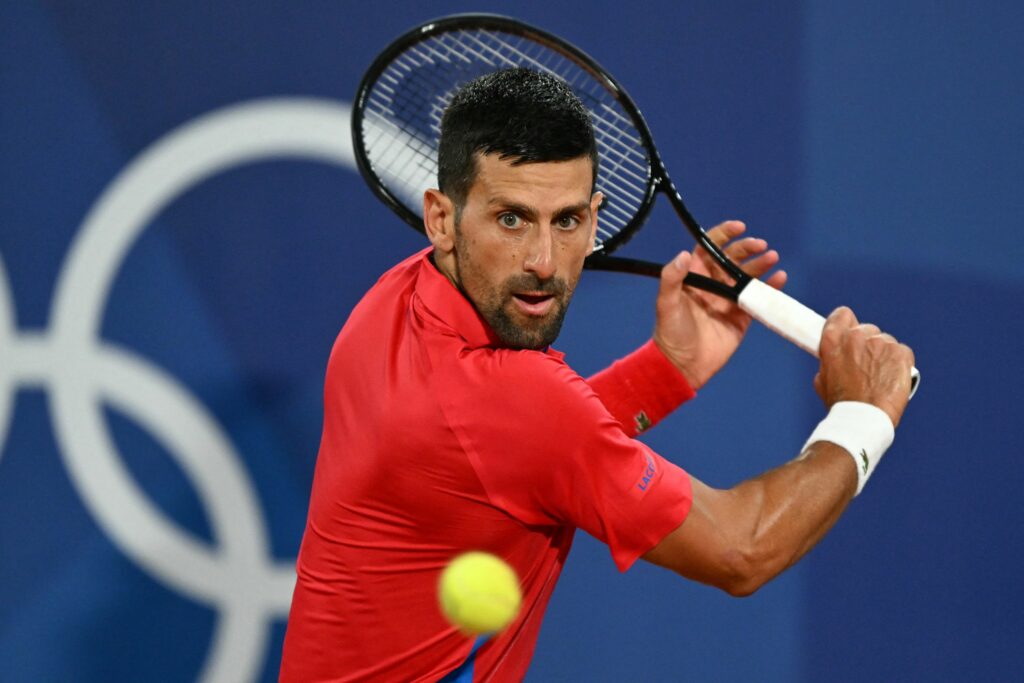Fifa has set the seal on one of the most controversial decisions in its tumultuous history by confirming that Saudi Arabia will host the 2034 World Cup.
In a decision that Amnesty International has said “will put many lives at risk” and which has drawn opprobrium from NGOs, trade unions and legal and governance experts, as well as supporters, the Gulf state will stage the 48-team tournament in 15 stadiums across five cities, most likely in winter.
The news has been anticipated for more than a year, since Fifa expedited its bidding process leaving Saudi as the sole bidder for 2034. It was confirmed on Wednesday in a bizarre virtual congress of Fifa’s 211 members, a meeting plagued by technical difficulties and with its key decisions taken not by vote but by acclamation, a collective clapping of hands on a wall of video screens.
Also confirmed was the destination of the 2030 World Cup, which will be hosted by Morocco, Spain and Portugal, with three “centenary celebration matches” in Argentina, Uruguay and Paraguay to launch the tournament.
The president of Fifa, Gianni Infantino, said that the process of deciding hosts without a vote had “shown unity” in the football community. “In a divided world you have shown unity, you have shown that we are part of a global community,” he said. “We are not all equal, we know that, but we are learning to live with our differences and to respect each other.
“We are of course aware of critics and fears. I fully trust our hosts to address all open points and I fully expect them to deliver tournaments that meet the world’s expectations. This is what we expect and look forward to: social improvements, positive human rights impacts. The world will be watching and it is positive that the unique spotlight of the World Cup is on what can and should be improved so that this can be addressed effectively and we can have real and lasting change.”
The Saudis expressed gratitude at being selected as hosts and promised “an extraordinary version of the World Cup” in 10 years’ time. “For us, soccer or football is not only a sport,” the sports minister, Abdulaziz bin Turki al-Faisal, said. “It is a value that we share with the entire world. We are looking forward to hosting and we’re looking forward to hosting many more events and making the history of football. This is the chance to invite you all to visit my country, to celebrate our culture, to see the greatest success story with your own eyes, in our kingdom.”
Fifa’s assessment of the Saudi bid, published last month, was glowing. It rated the risks of human rights violations as “medium”, saying “the bidder commits to upholding international human and labour rights in the full life cycle of the competition” but noted there was a need for “effective enforcement, without which the risk of indecent working conditions could be elevated” and that “implementing the various measures outlined in the Human Rights Strategy, particularly in certain areas, could involve significant effort and time”.
Amnesty’s head of labour rights and sport, Steve Cockburn, dismissed any upbeat assessment. “Fifa’s reckless decision to award the 2034 World Cup to Saudi Arabia without ensuring adequate human rights protections are in place will put many lives at risk,” he said.
“Based on clear evidence to date, Fifa knows workers will be exploited and even die without fundamental reforms in Saudi Arabia, and yet has chosen to press ahead regardless. The organisation risks bearing a heavy responsibility for many of the human rights abuses that will follow.”
Two international trade unions, the Building and Woodworkers’ International and International Trades Union Confederation – Africa, have filed complaints to the International Labour Organisation and the United Nations respectively over the treatment of migrant workers in Saudi Arabia. On Wednesday, the Business and Human Rights Resource Centre published data saying it tracked 82 instances of “corporate abuse of migrant workers” in the country from January 2022 to October 2024. It said one in four of these cases related to construction workers and the organisation reported allegations of workers undertaking 10-hour shifts in 45C heat on the Aramco stadium in Al Khobar, one of 11 new stadiums that will have to be completed by 2034.
The English Football Association joined in the act of acclamation, supporting both bids. In a statement it defended the decision and said it had held discussions with Saudi authorities over guaranteeing protections for LGBTQ+ fans who wish to travel to the tournament.
“Football is a global game, and is for everyone,” the statement said. “Our commitment to diversity and inclusion means being respectful of all, including all religions and cultures. We also believe that hosting World Cups can be a catalyst for positive change, which is best delivered by working collaboratively in partnership with host nations. We will work with Fifa and Uefa to ensure that commitments to respect all human rights are delivered.”
Norway and Switzerland were the only nations to express concern over the bidding process.
Rodney Dixon KC, who made a legal submission to Fifa in October with other human rights experts warning that it was “dealing with the devil” in planning to take the tournament to Saudi Arabia, said the governing body’s reputation was “in tatters and the game of football has been denigrated”.
Dixon, who has represented Hatice Cengiz, whose husband, Jamal Khashoggi, was murdered inside the Saudi consulate in Istanbul in 2018, said: “Fifa should insist on minimum human rights compliance by Saudi Arabia, at least, to release jailed political opponents, stop torture in its prisons, uphold women’s rights, permit free speech and association, guarantee workers’ rights, and establish an independent judiciary. If these conditions are not fulfilled, Fifa should in accordance with its own policy change the host country.”










